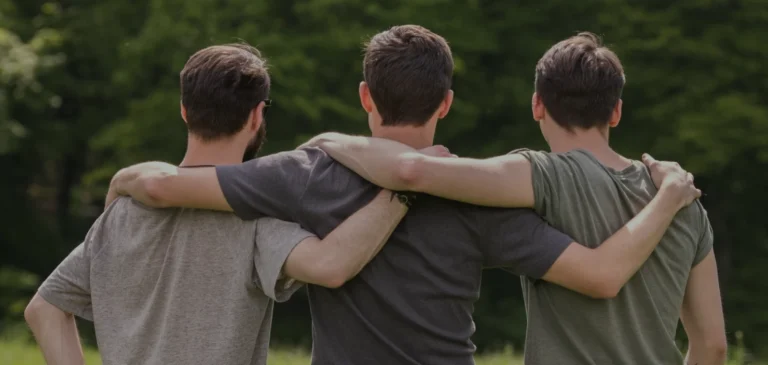Chronic Stress, Drug Use, and Vulnerability to Addiction

Celebratory events, such as holidays, birthdays, or anniversaries, can be challenging as they often involve alcohol or other substances. Lack of structure or engagement in meaningful activities can lead to boredom, which may trigger cravings as a way to fill the void. While some people may not understand your actions, over time they will have to learn how to respect your choices. A study of rats by the University of Michigan found that the rats largely preferred rewards that triggered the brain’s amygdala, part of the limbic system that produces emotions. The researchers also discovered that the rats were inclined to work harder to obtain the reward that triggered the amygdala than the same reward that did not trigger any emotion in the brain.

Avoiding High-Risk Situations

Discover what is Zohydro addiction, its risks, effects, and treatment options to support recovery. Discover effective treatments, support resources, and prevention strategies. Both peer support and professional relationships are crucial in recovery.
- Recognizing high-risk situations and taking proactive steps to protect one’s recovery journey are crucial for long-term success.
- It is crucial to remember that everyone’s triggers may vary, and personalized strategies play a vital role in achieving long-term success.
- By recognizing these triggers, individuals can develop effective coping strategies and relapse prevention plans to navigate through challenging situations.
- If you isolate yourself from friends, family, and others in your support system, it becomes easy for you to rationalize your substance abuse and increases the chances of redeveloping substance dependence.
- Discover the economic effects of alcohol and drugs, from GDP impact to costs on productivity and healthcare.
Peer and Professional Support in Recovery
Keeping in regular contact with your counselor or sponsor can help you avoid this relapse trigger. This plan includes identifying triggers, developing coping strategies, setting boundaries, and having an emergency plan. Also critical is building a support network that understands the importance of responsiveness. Not least is developing adaptive ways for dealing with negative feelings and uncertainty.
How to Financially Recover After Addiction? A Step-by-Step Guide
Discover how mindfulness in addiction recovery can reshape thoughts and promote lasting healing and well-being. Explore the risks of mixing lisinopril and alcohol side effects, from blood pressure impacts to dehydration. Discover non-12-step rehab to treat addiction, a revolutionary approach offering personalized recovery paths. Explore the tragic stories of celebrities who died of overdose, learn about causes, impacts, and prevention. Learn how to tell if your child is vaping, understand the risks, and start a supportive conversation.

Get started on the road to recovery
Some examples of high-risk situations include being around substances, such as parties, bars, or environments where drugs or alcohol are accessible. Emotional distress, such as stress, anxiety, or depression can also lead to relapse. Developing healthy coping mechanisms and self-care practices is essential. Activities like exercise, mindfulness, hobbies, and therapy help manage stress, cravings, and triggers.
Key Indicators of Quality Drug Rehab Centers
By implementing these rules, individuals can create a supportive and responsible framework that promotes long-term recovery https://ecosoberhouse.com/article/am-i-an-alcoholic-do-i-have-a-drinking-problem/ and helps navigate through challenging situations without turning to substance use. Yes, support groups can be immensely helpful in managing high-risk situations and preventing relapse. These groups offer support, guidance, and a sense of community that can be invaluable in sustaining sobriety.
- Perhaps the most glaring warning sign is if an individual in recovery starts to doubt the effectiveness of the recovery process.
- Learning to cope with these feelings without resorting to substance use is crucial for sustaining sobriety 2.
- If you’d like to learn more about our mental health and addiction treatment programs, reach out today.
- The majority of people who decide to end addiction have at least one lapse or relapse during the recovery process.
- Discover proven ways to beat boredom in addiction recovery through hobbies, community, and new skills.
- That way, you can explore new behaviors and thought patterns to help you stay clean.
- This may mean leaving the grocery store or not saying hello to a friend from that period in your life.
- There’s nothing rude about taking care of yourself and avoiding triggers that could lead to a relapse.
- These kinds of positive influences will decrease your likelihood of relapsing.
Environmental cues play a significant role in triggering relapse for individuals in recovery from addiction. These types of relapse triggers cues can vary from person to person; however, understanding them is essential for developing effective strategies to prevent relapse. In order to effectively manage high-risk situations, it is important to develop a comprehensive relapse prevention plan.
The HALT acronym helps those in recovery keep an eye on some of the most basic human needs that can lead to or intensify triggers if not fulfilled. Being in any one of the HALT states reduces a person’s ability to cope with stress and increases impulsivity. Seeking professional help when faced with challenges during your recovery journey is paramount.
- So, with continued therapy and support you should be able to build stronger defenses against common triggers.
- MBRP aims to increase your acceptance and tolerance of your physical, emotional, and mental states.
- This article aims to provide insights into the common triggers for relapse and strategies to effectively manage these high-risk situations.
- Expecting triggers and planning to cope with them effectively is the best way to defend against addiction relapse.
While they are meant to be a reason to gather and celebrate, those in recovery must expend extra energy to ensure they are coping well with gatherings that involve social drinking, for example. Some people have to deal with friends or family members who don’t understand that “just one” or “just for tonight” are damaging and enabling statements that can trigger a relapse. For more on recognizing signs of potential relapse, visit our article on five signs an addict is about to relapse and learn how to effectively navigate recovery hurdles. Additionally, understanding the difference between slip and relapse can further aid in developing a robust relapse prevention plan. It is essential for individuals in recovery to develop healthy coping strategies. This can involve relaxation techniques, such as mindfulness, meditation, or physical exercise, which can help to manage stress levels effectively.

Top 7 Relapse Triggers And How To Manage Them
Asking certain questions about external triggers can help prevent relapse. They can help identify and treat any underlying issues that could increase your risk of relapse. They also provide counseling services to teach healthier coping strategies for stress and negative emotions. If you or a loved one has experienced a relapse, or are just considering treatment options, we are here to help you. As soon as things start getting hard, it’s tempting to turn back to addiction.

Deixe uma resposta
Want to join the discussion?Feel free to contribute!